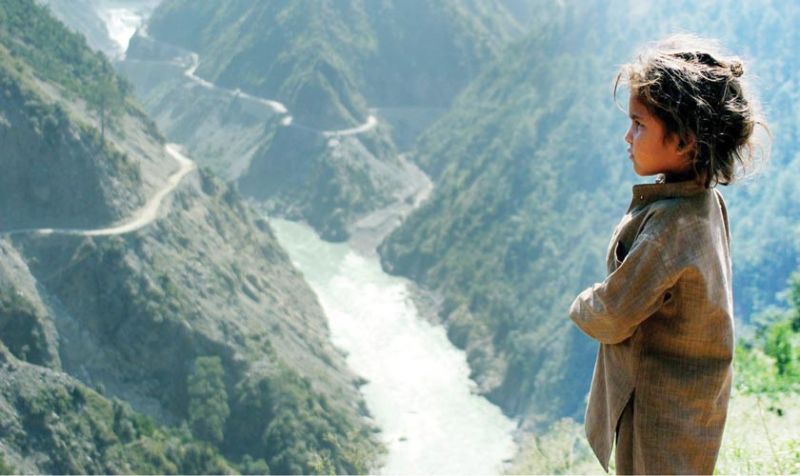Modi’s Water War
Published on by Water Network Research, Official research team of The Water Network in Government
Last month India’s technology hub, Bengaluru, was to be shut down after violent protests broke out over distribution of water.
 Two people were killed and nearly 200 vehicles were torched in the days of riots that swept across the southern state of Karnataka, of which Bengaluru is the capital.
Two people were killed and nearly 200 vehicles were torched in the days of riots that swept across the southern state of Karnataka, of which Bengaluru is the capital.
At the heart of dispute was distribution of water between Karnataka and neighboring Tamil Nadu from the river Cauvery.
The riots erupted in the wake of the decision of the Indian Supreme Court ordering Karnataka to divert some water from Cauvery to Tamil Nadu.
The violence prompted Indian Prime Minister Narendra Modi to go to twitter appealing Karnataka and Tamil Nadu to resolve their differences over water sharing peacefully.
Ironically, Mr Modi is trying not to make water a bone of contention inside his country but he is trying to ignite a crisis over distribution of water outside the boundaries of his country.
Like Cauvery, the distribution of waters of the rivers of the Indus Basin has been a major dispute between Pakistan and India since their independence from British colonial rule in 1947.
Thanks to the efforts of the World Bank, Pakistan and India succeeded in reaching an understanding on sharing of water from these rivers and they sealed a landmark agreement of Indus Waters Treaty on September 19, 1960 over distribution of six rivers of the basin.
Under the Treaty, the waters of the three western rivers – Indus, Jhelum and Chenab – are available to Pakistan while the eastern rivers – Sutlej, Beas and Ravi, are allocated for the unrestricted use by India.
Under the Treaty, India could use 20 percent of the water from the western rivers but would let the remaining 80 percent of water flow to Pakistan unhindered.
The importance of the Indus system for the economy of Pakistan cannot be overstated as over 60 percent of its geographical area, including its agriculture heartland, Punjab, is part of the Indus basin.
Thanks to the development of the basin, Pakistan has the world’s largest canal irrigation system which accounts for more than 90 percent of its irrigated area. Its biggest dams and several smaller ones – major sources of electricity, irrigating and drinking water --are also located in this basin.
Pakistan and India have fought three wars, two of them after the signing of the Indus water treaty but the pact has survived these wars as well as several other conflicts.
Indians, however, now seem to be upping the ante and weighing their options to use this treaty as a trigger for war in the wake of Uri attack near the Line of Control in Indian occupied Kashmir in which 18 Indian soldiers were killed.
India blamed Pakistan for the attack but has failed to back up its accusations with any evidence. However, it has ratchet up tensions to take revenge of the attack from Pakistan which has categorically denied its involvement.
Mr Modi last week also chaired a high level meeting with his government’s officials from the water department as well those from the ministry of external affairs amidst reports that his government is considering to review or scrap the Indus Water Treaty.
The veiled threat prompted Pakistani Prime Minister’s advisor Sartaj Aziz to warn India that any such attempts would tantamount to declaration of war.
Most of the commentators and experts, including those from India, however, maintain that the bombastic statements from Indian leaders are primarily meant to pacify the hawkish elements in India who want to flare up confrontation with Pakistan while in reality India could not do much, at least now, to alter the treaty.
In their view, Pakistan’s arms-twisting over water issue by India is easier said than done.
They say the Indus Water Treaty is a bilateral treaty that was signed under the auspices of the World Bank and there is no provision in the treaty that allows any party to unilaterally walk away from it.
Secondly, they maintain abrogation or amendment as desired by India to squeeze Pakistan could create difficulties for India itself too.
The Indian Express recently quoted Shakil Ahmad Romshoo, head of the Earth Sciences Department at Kashmir University in Srinagar as saying that river waters could not be stopped or released at the turn of a switch as desired by the Indian leaders.
The observers say it would be an insane act on the part of India to take this action, particularly at this time when a strong anti-India freedom movement is sweeping across the held Kashmir region.
Read full article at: The News Magazine
Media
Taxonomy
- Water Access
- Water Cooperation & Conflict
- River Studies
- Water Management
- Conflict Management
- Dispute Resolution